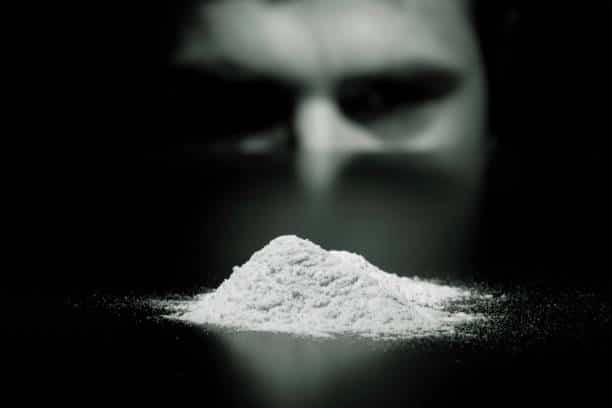
The process of recovering from a cocaine addiction is difficult and involves much more than simply stopping use of the drug. It becomes imperative that one addresses the various ways the drug affects both the mind and the body. The ultimate objectives are to rebuild one’s sense of value and mend damaged relationships. For individuals caught in the grip of addiction or their loved ones seeking to help, understanding the nuances of cocaine use disorder is essential. Simply put – recovery entails many elements and sometimes professional help is needed to overcome cocaine addiction.
The Side Effects of Cocaine Addiction
Cocaine starts with promises it cannot keep. A rush of euphoria with boundless energy and soaring confidence users but continued use can lead to substance abuse disorder. The short-term effects such as rapid heartbeat, elevated blood pressure, and hyper-alertness may seem manageable and even thrilling. This is far disconnected from the truth as the long-term consequences unravel a darker reality.
Prolonged cocaine abuse can ravage the heart by causing arrhythmias, hypertension, or even sudden cardiac arrest. Since the heart and vascular system is responsible for supplying the whole body with oxygen, chronic damage to these systems can lead to dysfunction of multiple organs. The drug doesn’t spare the mind either, often leaving behind a trail of anxiety, paranoia, and deep-seated depression that linger long after the acute effects have worn off. The physical damage depends on how cocaine is consumed. Snorting may erode nasal tissue, leading to the disfigurement known as “cocaine nose.” Smoking can scar the lungs making it more susceptible to illnesses such as pneumonia and interstitial lung disease, while injecting exposes users to dangerous infections like HIV or hepatitis. Each method exacts its own toll, but all roads lead to harm.
The true cost of cocaine lies not just in its health effects but in the diminishing of joys in life and the relationships we create along the way. Cocaine produces its addictive effects by acting on the brain’s limbic system which is responsible for motivation and pleasure. The immediate gratification achieved by the build-up of dopamine in this area rewires the brain circuitry to constantly chase the next “high”. When life becomes a journey of finding that immediate gratification, one fails to acknowledge the beauty of the present and thus fails to ever actualize their own potential. One may feel disconnected from their own existence, feeling a sense of depersonalization as layers of meaning are stripped from life. Recognizing these dangers is the first step toward seeking cocaine addiction treatment. Recovery begins when the need to heal outweighs the pull of the next high.

Recognizing Signs of Cocaine Addiction
The grip of cocaine addiction often envelops a person unknowingly as it weaves itself into their life through subtle changes. Over time, these signs become impossible to ignore. Understanding these patterns can make all the difference in seeking timely help because the longer one waits to seek recovery, the harder the process becomes.
Genetics sometimes play a role, with family history heightening susceptibility. Having a first degree relative with cocaine addiction not only suggests genetic vulnerability but also shared environmental factors making family and social history a very critical factor. Behaviorally, addiction may manifest as increasing reliance on the drug, escalating doses due to a build up of tolerance, and a noticeable withdrawal from once-cherished activities. Relationships fray as responsibilities abdicate, and the drive for cocaine overshadows everything else becoming one’s foremost priority.
Physically, the signs are often stark. Frequent nosebleeds or a runny nose point to snorting, while chronic coughing might signal smoking. Those who inject may bear track marks or recurring infections. Beyond these visible symptoms, there are deeper mental health changes. Paranoia, agitation, and sudden mood swings are common, often growing into severe anxiety or depression as brain chemistry shifts under cocaine’s influence. Addiction distorts the brain’s reward system, making natural pleasures feel muted or insignificant. This creates a relentless cycle of craving and use while giving way to mental health issues such as anxiety, depression, and a hindrance in normal development. Identifying these signs early can steer someone toward help before the addiction deepens further. Mental health professionals can aid cocaine recovery by providing therapy to address underlying issues and by teaching coping strategies which foster emotional resilience. Through personalized support, they guide individuals in breaking addiction patterns, managing triggers, and building a healthy lifestyle which can be sustained.
Cocaine Withdrawal: Symptoms and Challenges
Breaking free from cocaine is a battle fought on many fronts, and withdrawal often becomes very difficult to tackle. It’s not simply about abstaining but rather about weathering the storm of symptoms that emerge when the drug’s grip loosens since the high from the drug masks the organic damage underneath.
Cravings often hit hardest, fueled by a brain that has learned to depend on cocaine for its reward and motivation pathways. This can lead to a profound sense of emptiness, irritability, and fatigue. Many individuals find themselves wrestling with sleepless nights, vivid dreams, nightmares, abnormal tactile sensations, and a complete lack of energy during the day. These symptoms, though temporary, can feel relentless and are a major barrier into seeking rehabilitation. Medical detox provides a safer path through this minefield. In a supervised environment healthcare professionals can ease withdrawal symptoms with tailored support by reducing both discomfort and the risk of relapse. It’s a critical first step that creates a foundation for lasting recovery and a mutual trust for a shared beneficial goal.
It must be noted that withdrawal isn’t just physical. It can take an overwhelming emotional toll as well. Depression and irritability may cloud the process, underscoring the need for holistic care. Therapy, mindfulness practices, and peer support can help individuals regain a sense of control. There are other challenges which are often overlooked when discussing addiction recovery. This predominantly pertains to the social stigma associated with people who struggle with substance use which makes it difficult to rebuild trust in relationships and navigate post-recovery identity. Managing boredom, loneliness, and re-establishing a sense of purpose can also hinder progress without adequate support and resources. Proper nutrition and exercise further aid recovery by restoring balance to a body and mind thrown off course by addiction. Though daunting, withdrawal is a gateway. Each day of perseverance brings renewed strength, pushing individuals closer to a life unburdened by cocaine. It’s the beginning of something better.

Treatment Options for Cocaine Recovery
Quitting cocaine addiction requires more than willpower. It demands a thoughtful, multi-faceted approach tailored to the individual. Each journey is unique, and successful recovery embraces this individuality. Every case and every story must be seen through a unique lens since the factors that contribute to addiction are varied and the same approach doesn’t necessarily yield the same result in different people.
Cocaine detox is often the first and most crucial step. In this controlled setting, withdrawal symptoms are managed safely and this gives individuals the stability needed to move forward. Once the immediate physical hurdles are addressed, therapy takes center stage. Cognitive Behavioral Therapy (CBT) helps individuals identify dysfunctional patterns and replace them with healthier coping mechanisms. Group therapy and peer support create a sense of community where shared experiences foster hope and resilience. The power of shared story-telling emboldens people to act as one witnesses people at different stages of their recovery. It strips a layer of skepticism and proves that recovery is not only possible but is a tool for reinvention and inspiration.
Family support is another pillar of recovery. Addiction rarely affects just one person—it ripples through families. Family therapy fosters understanding and healing which often strengthens the bonds that addiction strains. Your loved ones are a crucial part of your recovery journey, providing the support and understanding you need. Cocaine addiction treatment is about more than quitting; it’s about rediscovering life and reconnecting with the people and moments one may have failed to actualize. The right plan doesn’t just help overcome addiction; it opens doors to a healthier and more fulfilling future.

Holistic and Research-Based Treatment Approaches
A holistic approach to recovery addresses addiction’s full scope—physical, emotional, and social. Cocaine addiction typically depletes the body of essential nourishment, and healing begins with replenishment. Proper nutrition restores balance, while regular exercise invigorates both mind and body, releasing endorphins that naturally elevate mood.
Alternative therapies like yoga, meditation, and acupuncture offer additional pathways to self-awareness and stress relief. Yoga strengthens the body and fosters mindfulness while meditation enhances focus and emotional regulation. Acupuncture alleviates withdrawal symptoms, boosts endorphins, and promotes sleep. This is especially important because the maintenance of regular sleeping and eating can uplift an otherwise turbulent withdrawal period. Together, these holistic practices support lasting healing and resilience in recovery. These practices complement traditional treatments, weaving together a more comprehensive recovery plan. Evidence-based approaches remain at the forefront, ensuring that treatment is grounded in proven methods.
Conclusion: It’s Never Too Late to Start Recovery
Recovery from cocaine addiction is within reach, no matter how distant it may feel. With the right support and a comprehensive plan, anyone can reclaim their life and rediscover joy in the simple moments and regularity of life. Trafalgar offers compassionate care by blending evidence-based treatments with holistic approaches to address every aspect of addiction. Whether taking the first step or encouraging someone else to start, the path to healing is always open. A brighter, healthier future awaits those ready to embrace it.
Information on this page is for informational purposes only, and does not replace personalized medical advice. You should never make any decisions about your health without consulting a healthcare professional, especially when related to substance use or mental health. To speak to a qualified member of our team for personalized advice, you can contact us here.





